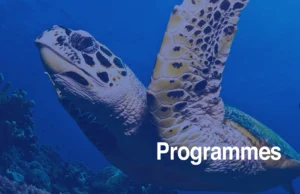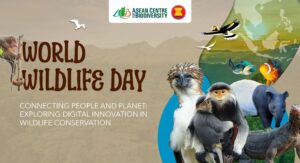BANGKOK, Thailand – Biodiversity and health experts from the ASEAN Member States (AMS) convened earlier in February to talk about the roles of environment, wildlife, and biodiversity in disease prevention, detection, and resurgence.
The technical forum Reflecting on the Relevant Role of Biodiversity, Wildlife Conservation, and Environment in Building Resilience through One Health Approach convened key technical staff from the AMS and relevant ASEAN sectoral bodies to exchange views and align efforts that contribute to One Health implementation in the region.
One Health refers to a unified approach to balance the health of people, animals, and ecosystems. The term was first used in 2004 after the emergence of the severe acute respiratory disease (SARS) and avian influenza H5N1. It emphasises the relationship between human health and environmental health, covering a range of issues such as zoonotic diseases, vector-borne diseases, and food safety among others. The occurrence of the COVID-19 pandemic further underlined the importance and immediate implementation of One Health.
Biodiversity, environment in One Health discussions
The ASEAN Declaration on One Health Initiative, adopted during the 42nd ASEAN Summit in 2023, recognises the vulnerability of the AMS to epidemics and pandemics that may be borne from the relationship between humans and the environment and that are further exacerbated by climate change.
Dr. Vong Sok, head of Environment Division of the ASEAN Secretariat, shared that “the Leaders’ Declaration consolidated existing initiatives and mechanisms of One Health collaboration in the region, as well as between countries and among various sectors, ministries/government agencies, academia, the private sector, and other institutions. The establishment of the ASEAN One Health Network and the development of an ASEAN One Health Joint Plan of Action reinforce multisectoral collaboration and coordination of the One Health Initiative, which includes the contribution and collaboration from the environment.”
He reiterated the necessity of a holistic approach in studying the impact of the pandemic from its possible origins, including biodiversity, to the end receptor: public health. Handling, transport, and trafficking in wildlife trade create issues and challenges that require concerted efforts from key stakeholders.
For her part, the ASEAN Centre for Biodiversity (ACB) executive director, Dr. Theresa Mundita Lim, asserts in her message the importance of cross-sectoral and cross-pillar engagements to support the Leader’s Declaration including the ASEAN One Health Joint Plan of Action. “These two significant milestones are already in place and provide clear, high-level guidance on how the region must move forward in building pandemic resilience. We just need to facilitate translating these policies into action on the ground, with an inclusive, well-coordinated, whole-of-society level of participation. This technical forum is one of the first steps at the regional level towards this end,” she said.
Dr. Lim elaborated that harmonising policies on public health, livestock and poultry production, and biodiversity, including wildlife protection and trade, to consider their interconnection and relevance to disease control and prevention will be essential to reducing the risks associated with future pandemics.”
The AMS shared interventions on One Health implementation in their countries. Participants also deliberated pathways through which biodiversity, wildlife, and the environment can feed into the One Health implementation in the region. Recommendations derived from these discussions will serve as bases for the ACB and other ASEAN centres to explore potential collaborations in line with the ASEAN One Health Joint Plan of Action.

Participants in breakout sessions discussed pathways on governance, legislation, financing, advocacy, implementation, workforce development, data, and knowledge management.
A Needs Assessment Validation Workshop was also conducted immediately after the forum, which aimed at providing an overview of the capacities of the AMS’ environment sectors in the areas of biodiversity and ecosystems, wildlife, and One Health.
The back-to-back activities were organised by the ACB with the support of GIZ through the Institutional Strengthening of the Biodiversity Sector in ASEAN (ISB II), the Food and Agriculture Organization (FAO) of the United Nations (UN), and the Australian Government Department of Foreign Affairs and Trade.
























